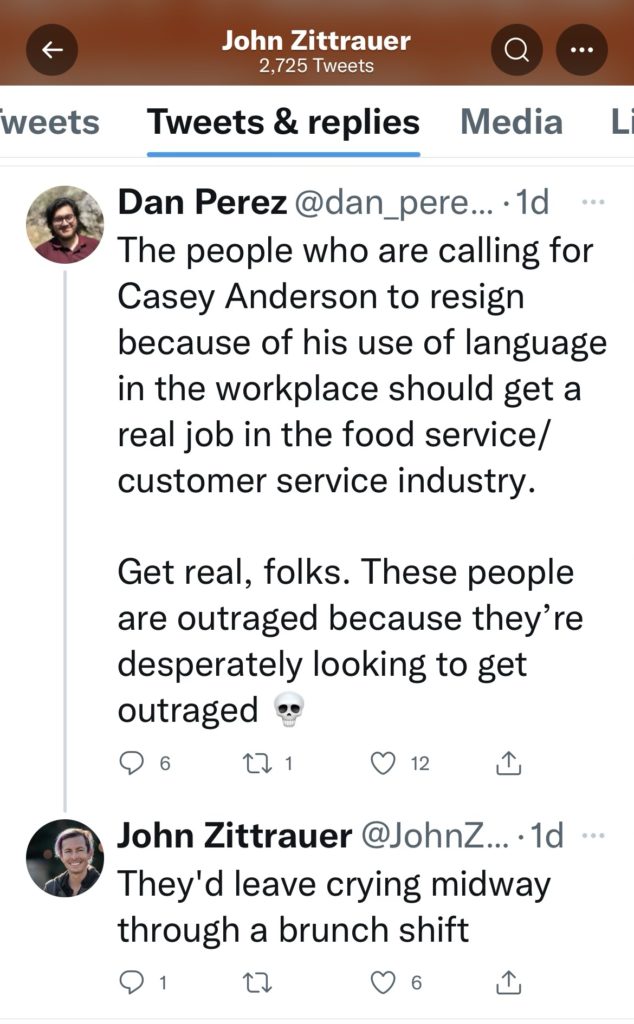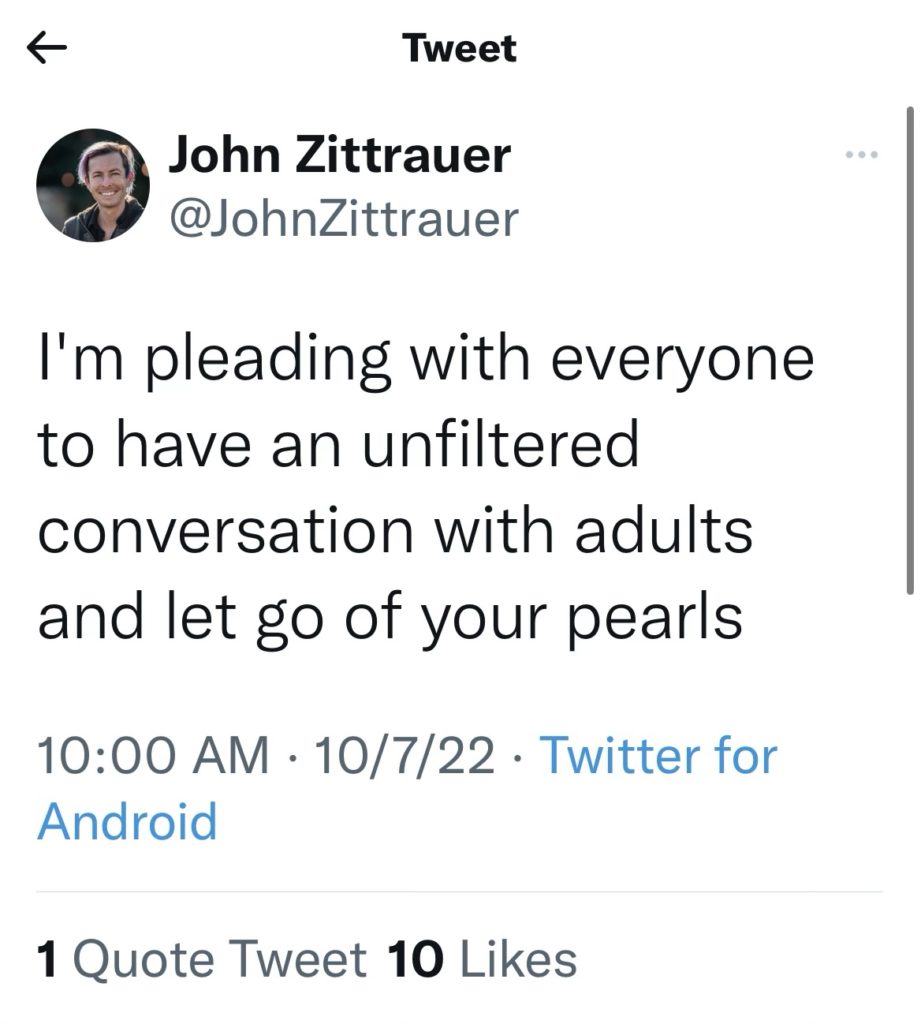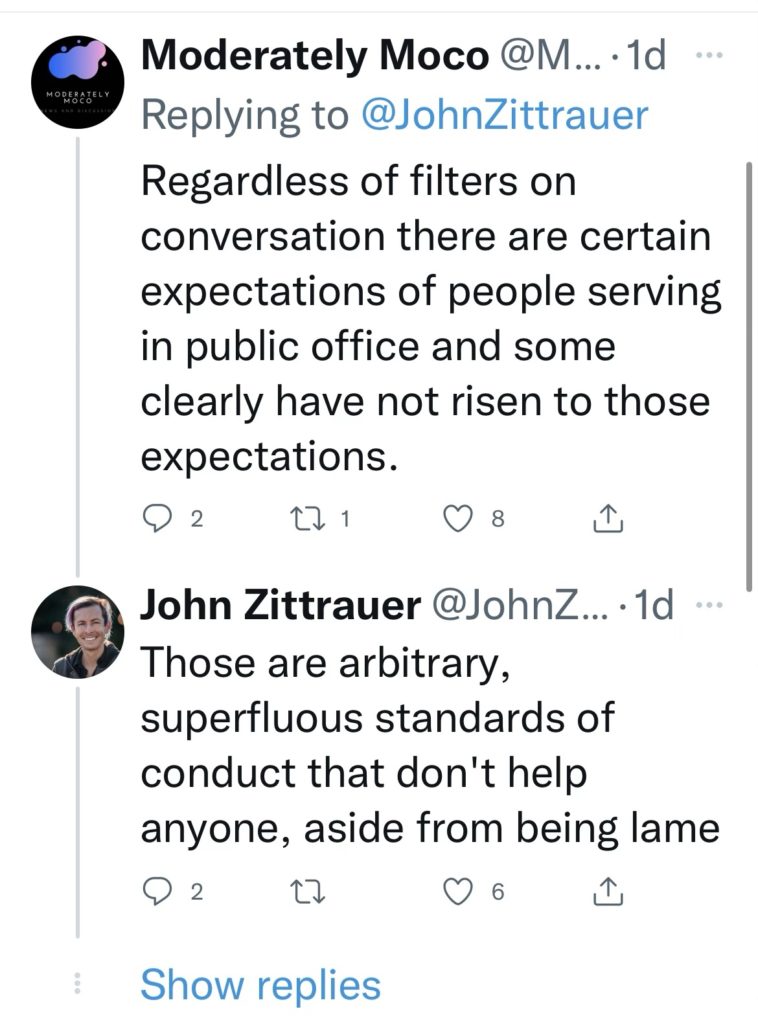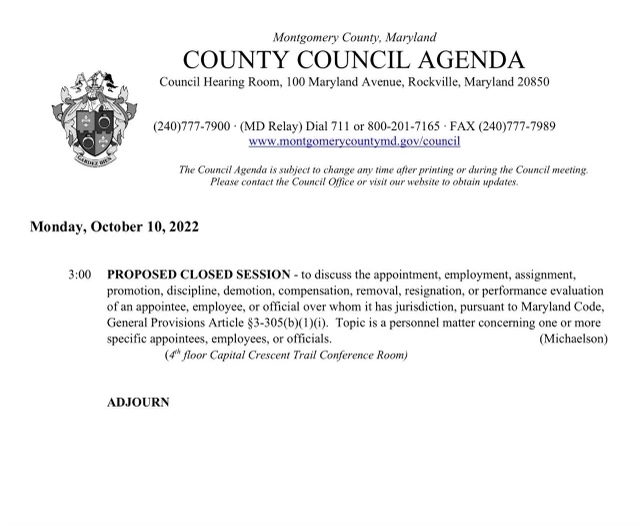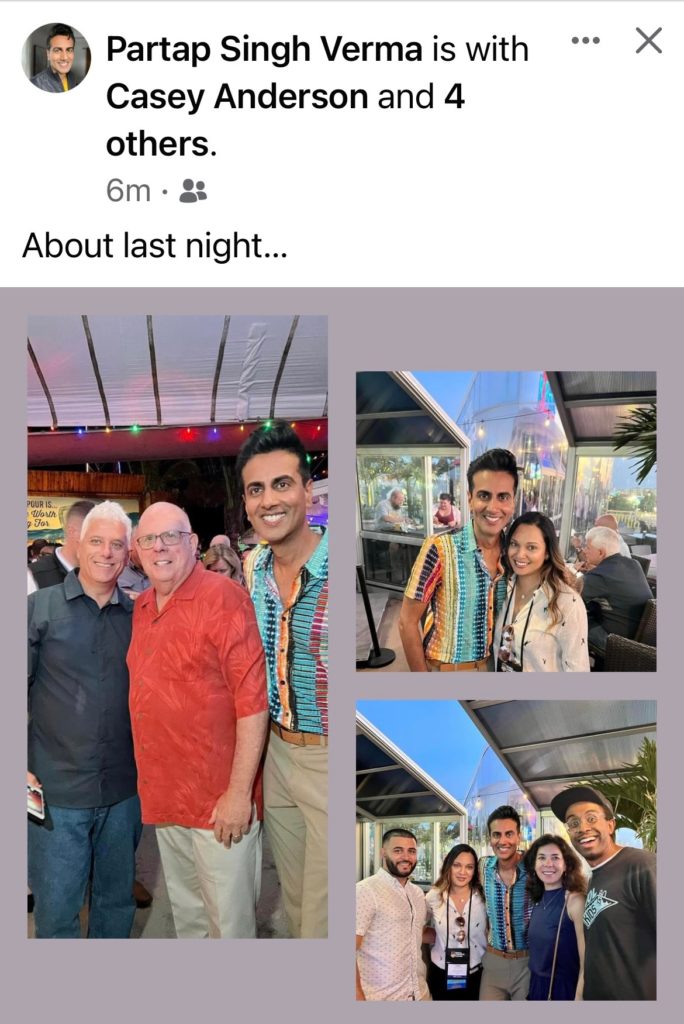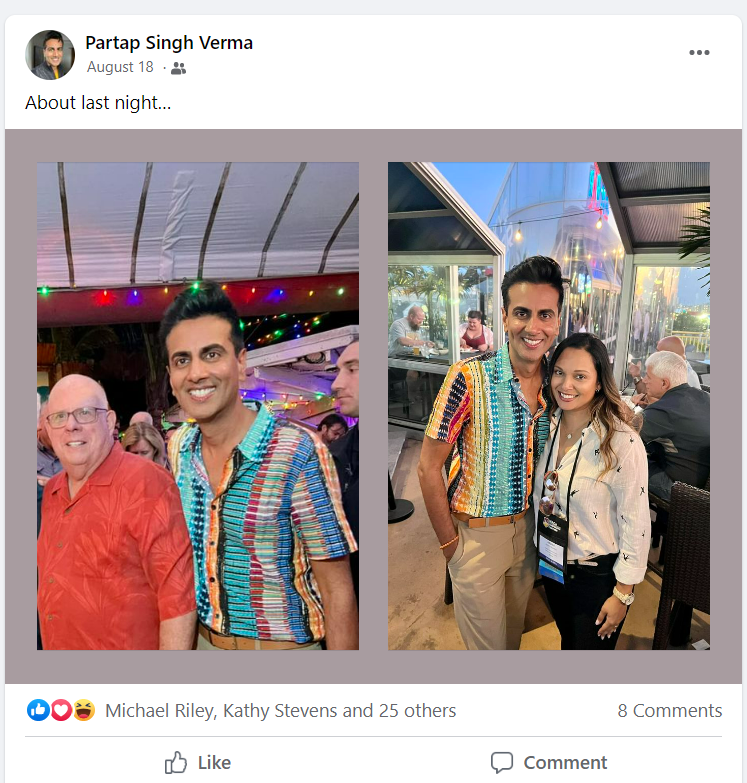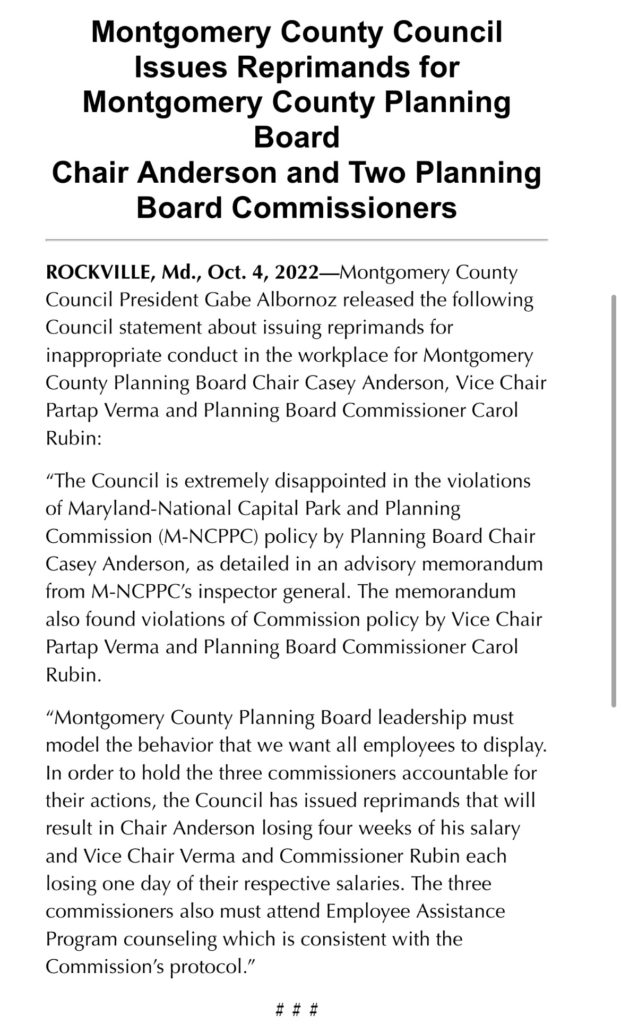It’s hard to keep up. Since I last wrote, a lot has happened.
Planning Board Chair Casey Anderson was removed from the Kojo in Our Community segment on WAMU on Thrive. (Disclosure: WAMU is owned by American University, my employer.)
Planning Board Vice Chair Partap Verma has gone on medical leave from the Planning Board.
Parks Department Deputy Director Miti Figueredo filed a complaint against Partap Verma. Fired Planning Director Gwen Wright says that the complaint is accurate. Though employed in the capacity of professional staff, both are staunch allies of Anderson. Figueredo, highly personable and well-regarded, previously worked as Anderson’s senior advisor. Extremely effective and well-connected, she also worked for two current members of the Montgomery County Council and the Chevy Chase Land Company.
Does anyone at Planning know anything about harassment law? Figueredo’s complaint against Verma could well be seen as illegal retaliation for his original complaint, especially since it was made public. Even if every word is true, and I don’t know the veracity of any of the complaints flying around, the information in Figueredo’s complaint related to the Verma’s complaint should have been given to appropriate person investigating these issues.
As with Wright’s comments before she was fired, there should be procedures in place–enforced by the Board and Staff leaders–to handle this correctly. Figueredo complained about the firing of Wright as retaliation for speaking out in defense of Anderson but nobody should be commenting publicly, let alone dismissing, harassment complaints whatever one thinks of Verma’s complaint or Wright’s dismissal.
Both Verma’s and Figueredo’s complaints appear like timely power plays. Verma had hoped to have Anderson’s support to become Chair. But Anderson hurt Verma’s reputation with his office booze offs and is rumored to support Councilmember Hans Riemer, another ally who has run up against term limits and came in third in the exec primary.
Now, Anderson’s supporters—Wright and Figueredo—are striking back even though both are supposed to be professional staff and not involved in Planning Board disputes. (One also wonders which staffers, if any, drank with Anderson in his office.)
The County Council seems to be unable to get a grip on this. While expressing grave concern about Wright’s dismissal, Council President Gabe Albornoz has not expressed concern, at least to my knowledge, about the massively inappropriate handling of these issues by virtually everyone concerned.
The debate among Planning Board members isn’t about Thrive 2050, as they all support it. But it does reflect on the process. These scandals indicate both political and staff leadership being willing to take extreme measures to achieve their goals.
Albornoz’s statement regarding the great community consultation during the creation of Thrive is naïve and uninformed at best. Most of the consultation consisted of Planning staff telling people positive spin about it rather than seeking input. Only input from firm supporters has been truly considered by either the Planning Board or the Council. Anderson’s approach is a big part of the problems at Planning.
Much about Thrive 2050 makes sense. We should have more density in urban nodes, which has been a consistent part of Master Plan revisions. But this document is visionary only in the sense that it looks backward. It takes no account of the massive rise in telecommuting and its impact on either transportation or housing patterns. Fewer people are riding public transit or riding in cars because of systemic changes. People working form home are likely to want more interior space and privacy as well as easy access to a little green. Thrive 2050 would have been a great plan to adopt in 1990.
Thrive 2050 represented an opportunity to bring the community together around a land use vision for the future. This was far from impossible. It occurred around the Bethesda Master Plan, which pleased many of the constituencies at odds here. But both the Planning Board and the County Council have failed in this endeavor and assured intense acrimony into the future. The current pile up of scandals shows why.
Rather than saving the next Council from these issues, the current one is simply storing up trouble. Adam and I disagree about lots of issues around Thrive but we agree that the Council needs to fix this.

